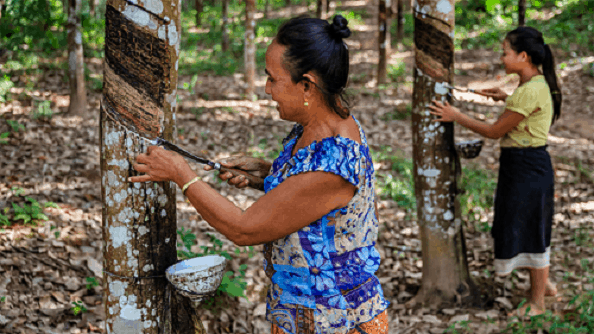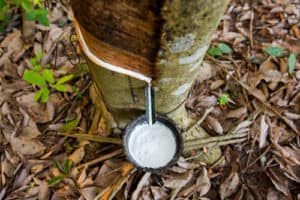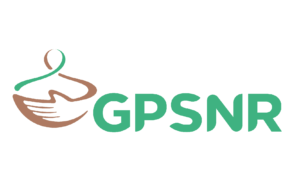Strategy and Objectives Working Group
The S&O Working Group has received inputs to the platform Theory of Change from the Smallholders Representation, Capacity Building, and Traceability and Transparency Working Groups. A task team from the S&O Working Group will now work to synthesize these different contributions into a single document. This compiled Theory of Change template will then be developed into the platform Theory of Change through a workshop which will involve representatives from all the working groups.
The Equity Sub-Working Group completed a summary of the Living Income studies that the platform commissioned in 2021 and presented the summary through a webinar. The webinar recording and slides can be found here. The reports are also available here on the member’s portal. The Equity Sub-Working Group will now work to develop recommendations on how GPSNR can address priority risks and boost equity in the value chain.
‘Policy Toolbox’ Working Group
The Policy Toolbox Working Group has selected a combined consultant team of Proforest and Are We There Yet to lead the development of the Implementation Guidance for GPSNR. The development is expected to be a consultative process that concludes with a set of draft guidance that will be ready by July 2021.
To facilitate consultation on the Implementation Guidance, the Working Group will set up category-specific focus groups that members are encouraged to join. The focus groups will meet twice to review the draft guidance and provide feedback and inputs to improve the document. Each focus group is only expected to meet twice and members are only required to spend a few hours before each meeting reviewing the draft documents. The focus groups will be set up in the following manner:
Focus Group 1
Growers
Traders of Raw Materials
Focus Group 2
Processors
Traders of Processed material
Focus Group 3
Tire makers and other manufacturers
Focus Group 4
End users (incl. car makers and other downstream stakeholders).
In line with the assessment of policy documents against the policy framework, the Secretariat has collated company policy documents that were submitted and will proceed to review the policy documents submitted for review. The Secretariat has received responses from all 29 ordinary member companies that were required to submit documents and will spend the next month assessing the submissions.
‘Capacity Building’ Working Group
The Capacity Building Working Group has created three separate task forces that will work on working group tasks. The first task force will focus on developing mechanisms to measure impacts of capacity building activities, the second task force will develop a strategy to attract and recognize GPSNR members’ funding of capacity building activities, and the final task force will develop systems to ensure that the national sub-groups tasked with implementing capacity building activities in each country remain aligned with the broader working group. In addition to the Good Agricultural Practices Task Force, the Working Group now has four Task Forces that will work to deliver on their tasks in the coming months.
‘Traceability and Transparency’ Working Group
The Traceability and Transparency Working Group will continue to meet in its sub-groups to develop recommendations on minimum benchmarks for traceability tools and data sharing in the platform. With the submission of the Working Group’s input to the Theory of Change, the Working Group is pleased to announce that its first sub-group has completed the assigned tasking and will no longer meet.
Smallholder Representation Working Group
The Smallholder Representation Working Group has now onboarded smallholders from Indonesia and Vietnam into the Working Group. The Working Group has also divided into two groups within the working group. The first sub-working group will work to develop a strategy to onboard smallholders from countries that are not represented in GPSNR yet. The second group will work to deepen engagement with smallholders who are already members of the platform and also develop strategies to improve representation among minority groups in countries that are already represented in GPSNR






